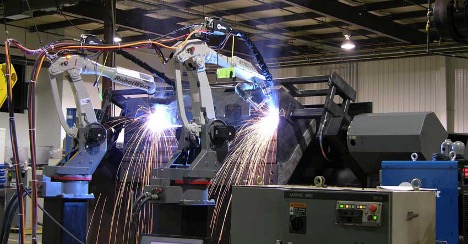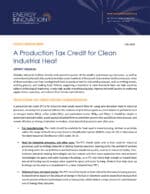Industry– like the production of cement, steel, and chemicals–will be America’s largest source of emissions by the end of the decade, and globally industry produces a quarter of total emissions. Most of these emissions come almost entirely from burning fossil fuels to make heat for industrial processes like melting metals, molding plastic, and cooking food. Smart policy design can make a big difference in combating industrial heat pollution while boosting the economy, adding jobs, and improving public health. A clean industrial heat production tax credit to reward manufacturers for using zero-emissions heat would be a powerful way to spur the clean industrial transition. The following policy design brief helps policymakers and advocates understand key considerations when designing a clean industrial heat production tax credit that achieves its goals while avoiding loopholes.

Get Access
Your information will not be used for marketing purposes and we never sell your data!
